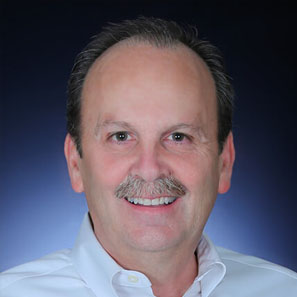In-Person Course In-Person Comprehensive Orthodontics
Session I: April 30 - May 3, 2026
Session II: June 4 - 7, 2026
Spots are limited, reserve now! Call us at 248-850-1433 or email
suzannej@forceint.com

Presented by:
Timothy Shaughnessy, D.D.S., M.S.
Clinical Director
Course Description
Comprehensive Orthodontics is an extended, two-part, 8-day comprehensive continuing education in orthodontics from an outstanding orthodontic educator and clinician, designed to educate the practitioner who wants to add orthodontics to his/her practice, or extend his/her present orthodontic services.
This course provides an extended comprehensive education covering nearly all aspects of orthodontics. It will take you from diagnosis, through treatment, and into retention. Protocols will include early interceptive procedures, functional orthopedic therapy, fixed "straight-wire" treatment, and both fixed and removable retention appliances.
Dr. Litt spent 20 years of his academic career directing the graduate orthodontic programs at the University of Detroit School of Dentistry and the University of California, San Francisco, School of Dentistry. This course is a distillization of the concepts and procedures provided in a graduate school orthodontic curricula of these two fine programs. Dr. Litt is the original author of the Comprehensive Orthodontics Course. Dr. Litt retired in 2023.
Timothy G. Shaughnessy, DDS, MS will be presenting all in-person Comprehensive Orthodontics Courses. Dr. Shaughnessy has been part of the faculty of FORCE, International since the late 1980’s.
Dr. Shaughnessy was an Assistant Professor in the Department of Orthodontics, Emory University School of Postgraduate Dentistry from 1986 to 1992. He became a Diplomate of the American Board of Orthodontics in 1990. He is a Fellow of the Pierre Fauchard Academy, the American College of Dentists, and the International College of Dentists.
This course will cover
- Facial esthetics and facial balance
- The effects of orthodontic treatment on facial esthetics
-
Craniofacial growth and development
- The projection of facial growth
- The assessment of skeletal maturation
-
Cephalometrics
- Morphological evaluation (the Biodynamic analysis)
- Orthodontic diagnosis
-
Early interceptive treatment (Phase 1)
- Arch development
- Serial extraction
- Pre-orthopedic strategies
- Phase 1 treatment strategies and appliance selection
-
Cephalometric projection
- “Targeting” the treatment goals
-
Orthodontic treatment planning
- Determining treatment objectives
- Extraction/non-extraction decisions
-
Temporomandibular joint — function/dysfunction
- Orthopedics, orthodontics and the temporomandibular joint
-
Functional/orthopedic treatment (Phase 2): Comparison of functional and
orthopedic modalities
- Extra-oral traction
- Twin Block
- Palatal expansion/protraction
- Differential Appliance Selection and Management
-
Comprehensive Treatment (Phase 3)
- The “Six Keys” to occlusion
- The “Straight-wire” edgewise appliance
- The “Biodynamic” appliance system
- Basic biomechanical principles
- Archwires: Their properties and use
-
Comprehensive treatment (Phase 3): Mechanics planning (cases will be
presented demonstrating all of the following principles of mechanics
planning with posttreatment analysis of all treatment results
- Fixed appliance selection
- Archwire selection/utilization
- Finishing procedures
-
Retention and retention planning
- Adjunctive retention procedures
-
Orthodontic technique
- Enamel bonding lecture, demonstration, typodont exercise
- Biomechanics: the treatment of a Class I four-premolar extraction case on a typodont (includes the fabrication of a headgear, utility arch and all archwires used in treatment)
-
Early interception appliances: the fabrication, adjustment and
utilization of fixed and removable appliances used in the interceptive
and decompensating phases of treatment
- Maxillary Schwarz plate
- Maxillary 3D transpalatal arch
- Lingual arch (Wilson 3D Quadaction mandibular appliance)
- “Porter” type arch (Wilson 3D multi-action palatal appliance)
- Functional orthopedic appliances: the fabrication adjustment and utilization of functional/orthopedic appliances
-
Twin Block
- Twin Block/headgear combination
- Palatal expander
- Finishing Appliances (Tooth Positioner)
Tuition
Courses held in the United States are $8,995.00 U.S. A deposit of $1,495.00 is due 30 days prior to the start of the program, with the remainder to be billed in four monthly installments of $1,875.00. We accept Visa or MasterCard. You will receive a confirmation letter and complete course syllabus upon our receipt of your deposit.
C.E. Credits
56 hours
Supplies and instruments
You are not required to bring any instruments or materials to Session I of the program, with the exception of your course syllabus. At Session I, we will provide you with a list of instruments you need to bring to Session II (Technique Program).
Centerpointe Parkway, Pontiac MI 48341
(Just outside of Birmingham, MI)
-
Thursday, April 30, 2026 9:00am - 6:00pm
-
Friday, May 1, 2026 9:00am - 6:00pm
-
Saturday, May 2, 2026 9:00am - 6:00pm
-
Sunday, May 3, 2026 9:00am - 12:00pm
Centerpointe Parkway, Pontiac MI 48341
(Just outside of Birmingham, MI)
-
Thursday, June 4, 2026 9:00am - 6:00pm
-
Friday, June 5, 2026 9:00am - 6:00pm
-
Saturday, June 6, 2026 9:00am - 6:00pm
-
Sunday, June 7, 2026 9:00am - 12:00pm